Volkswagen Fears Pricey Jettas as Thorny Mexico Trade Talk Continues

A border tax placed on Mexican goods bound for the United States would be a worst-case scenario for struggling Volkswagen.
The automaker, which already knows a few things about worst-case scenarios, is waiting on pins and needles to see if the proposed tax prices its small cars out of the market.
Mexican manufacturing has been a boon to VW. Its Puebla assembly plant, surpassed in size only by its hometown plant in Wolfsburg, cranks out Jettas, Beetles and Golf variants for various markets, including America. Last year, 60 percent of the brand’s U.S. volume crossed the Texas-Mexico border.
Building its compact cars in Mexico not only saves the company money, it allows VW to offer the models for a reasonable price (even though domestic and Japanese rivals undercut the vehicles’ MSRP). President Donald Trump’s tentative 20-percent border tax could throw the whole operation into disarray, adding costs that would need to be recovered through sticker prices. Executives and dealers now worry the maligned brand’s post-emissions scandal comeback is in danger of fizzling.
“It would be catastrophic,” Fred Emich, general manager of a Denver, Colorado dealership, told Automotive News. Emich said that VW prices already top that of its competitors, meaning few people would pay more for the same product.
Research company Baum & Associates LLC recently tabulated what such a tax would mean for vehicle MSRPs. Volkswagen, which relies heavily on Mexican manufacturing, didn’t fare well. On average, the markup would be $5,800 per vehicle.
A base Jetta carries a $17,895 MRSP in the U.S., while an entry-level Golf goes for $19,895. VW’s new Golf Alltrack is already a price heavyweight, at $26,950. Should the company’s worst-case scenario occur, VW might be looking at a Jetta that retails for as much as — or more than — a U.S.-built midsize Passat (which carries an MSRP of $22,440). The Golf Alltrack could enter Audi territory.
Of course, several other foreign rivals would see increases of their own, as VW doesn’t exist in a vacuum. However, domestic automakers would only very minor increases, at least compared to companies like VW. That would mean an instant leg-up for many Detroit Three models.
A solution would be to simply build more vehicles in the U.S., but that isn’t so simple. Thanks to the diesel emissions scandal, which carried a price tag of about $23 billion in the U.S., VW doesn’t have much cash to play with. The automaker is counting on a sales turnaround to boost its fortunes.
The diesel deception also didn’t help favorable attitudes towards the company in the halls of government, so asking for special treatment seems like a long shot.
[Image: Volkswagen of America]

More by Steph Willems
Latest Car Reviews
Read moreLatest Product Reviews
Read moreRecent Comments
- Jkross22 I'd imagine there's a booming business available for EV station repair.
- JLGOLDEN Enormous competition is working against any brand in the fight for "luxury" validation. It gets murky for Cadillac's image when Chevy, Buick, and GMC models keep moving up the luxury features (and price) scale. I think Cadillac needs more consistency with square, crisp designs...even at the expense of aerodynamics and optimized efficiency. Reintroduce names such as DeVille, Seville, El Dorado if you want to create a stir.
- ClipTheApex I don't understand all of the negativity from folks on this forum regarding Europeans. Having visited the EU multiple times across different countries, I find they are very much like us in North America-- not as different as politicians like to present them. They all aren't liberal "weenies." They are very much like you and me. Unless you've travelled there and engaged with them, it's easy to digest and repeat what we hear. I wish more Americans would travel abroad. When they return, they will have a different view of America. We are not as perfect or special as we like to believe. And no, many Europeans don't look up to America. Quite the opposite, actually.
- Dwford Let's face it, Cadillac is planning minimal investment in the current ICE products. Their plan is to muddle through until the transition to full EV is complete. The best you are going to get is one more generation of ICE vehicles built on the existing platforms. What should Cadillac do going forward? No more vehicles under $50k. No more compact vehicles. Rely on Buick for that. Many people here mention Genesis. Genesis doesn't sell a small sedan, and they don't sell a small crossover. They sell midsize and above. So should Cadillac.
- EBFlex Sorry BP. They aren’t any gaps



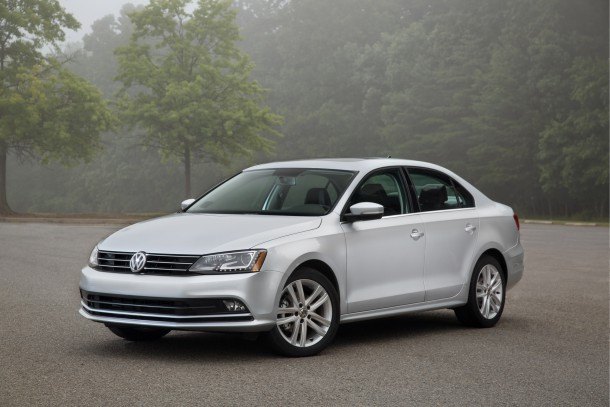















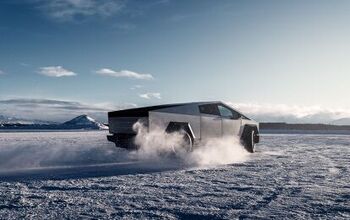


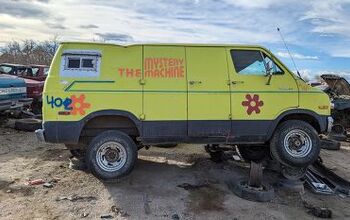


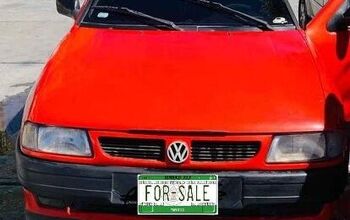







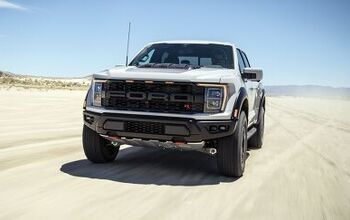
Comments
Join the conversation
VW's Qatar owners can stop funding ISIS and terrorism and divert some of that money to building VW factories in the US. Buy VW and support terrorism, or slap a tariff on VW's made in Mexico and decrease the money Qatar can send to terrorists. I don't see any issue or question here. Not for Trump, the rest of America, or the rest of the world.
VW made this bed - they can lie in it. Overpriced products with shoddy reliability - made in Mexico - all while cheating emissions standards. If VW's management wasn't so arrogant, they might have paid attention to the populist wave that resulted in Brexit - and started making contingency plans for North America. But no - VW management always believes they are right and have considered all the contingencies - and it's blowing up in their faces. Tough cookies VW. Had you honestly built reliable, competitively priced products in the US, your situation might be better today.